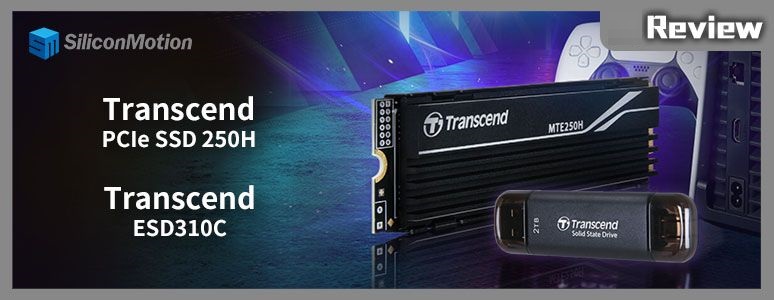
Silicon Motion (SMI) has developed two SSD controllers: the SM2320 USB SSD controller and the SM2264 SSD controller. These technologies have allowed Transcend to introduce the highly compact ESD310C USB SSD pen drive and the M.2 NVMe PCIe 4.0 x4 PCIe SSD 250H. During initial unpackaging and testing, the performance of SMI’s controllers was evaluated using two Transcend SSDs.
Specifications for Transcend ESD310C:
- Capacity options: 256GB, 512TB, 1TB
- Size: 71.3 mm x 20 mm x 7.8 mm (2.81″ x 0.79″ x 0.31″)
- Weight: 11 grams
- Interface compatibility: USB 3.2 Gen 2 Type-A and Type-C
- Controller model: Silicon Motion SM2320
- Memory type: 3D flash
- Sequential read/write speeds: 1050 MB/s (read), 950 MB/s (write)
- Warranty period: 5 years
Specifications for Transcend PCIe SSD 250H:
- Available capacities: 1TB, 2TB, 4TB
- Form factor: M.2 2280 with double-sided components
- Interface type: PCIe 4.0 x4, NVMe
- Controller model: Silicon Motion SM2264
- Memory type: 3D flash
- Sequential read/write speeds for 4TB model: 7500 MB/s (read), 6700 MB/s (write)
- MTBF (Mean Time Between Failures): 3 million hours
- Total write volume for 4TB model: 3120 TBW, with DWPD of 0.43 over 5 years
- Warranty period: 5 years
Transcend ESD310C compact dual-head USB SSD and PCIe SSD 250H Out of the box
The Transcend ESD310C dual-head USB SSD, despite being the same size as a standard USB flash drive, offers high-speed performance and compactness. It has a maximum storage capacity of 1TB and comes with a native upgrade to a dual interface of USB-A and USB-C. Following the USB 3.2 Gen 2 standard, it can effortlessly achieve sequential read and write speeds of 1050 MB/s and 950 MB/s, respectively.
The ESD310C is equipped with the Silicon Motion SM2320 controller, a single-chip solution that directly bridges USB with PCIe NVMe technology. This not only allows USB SSDs to be more compact but also contributes to cost savings. While the single chip can support up to USB 3.2 Gen 2×2 bandwidth and a capacity of 4TB, Transcend has possibly limited the specifications to USB 3.2 Gen 2 and a maximum of 1TB to maintain a design that’s both small and lightweight.
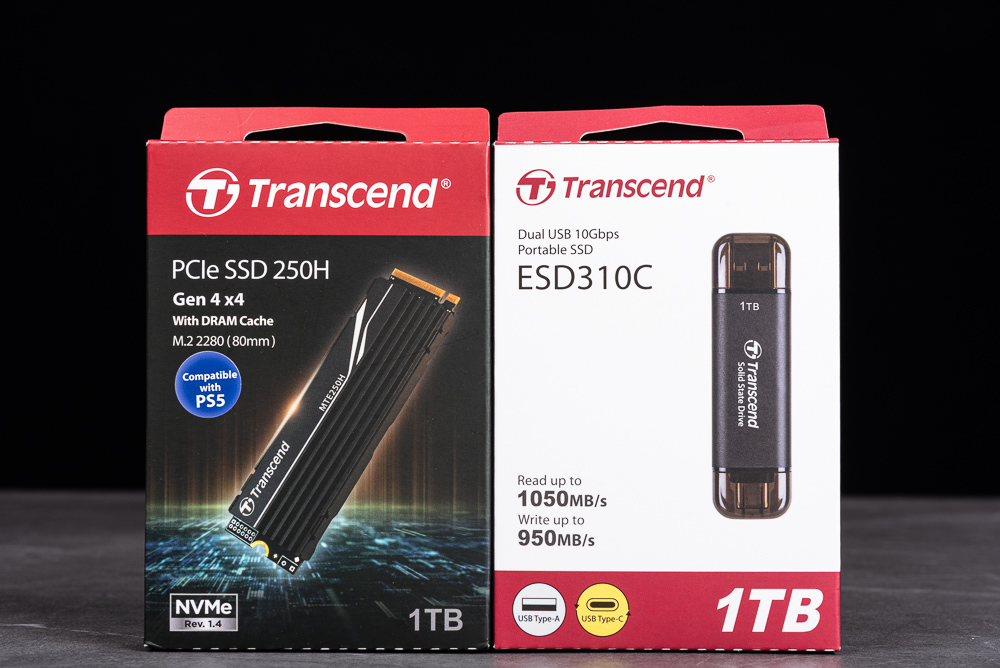
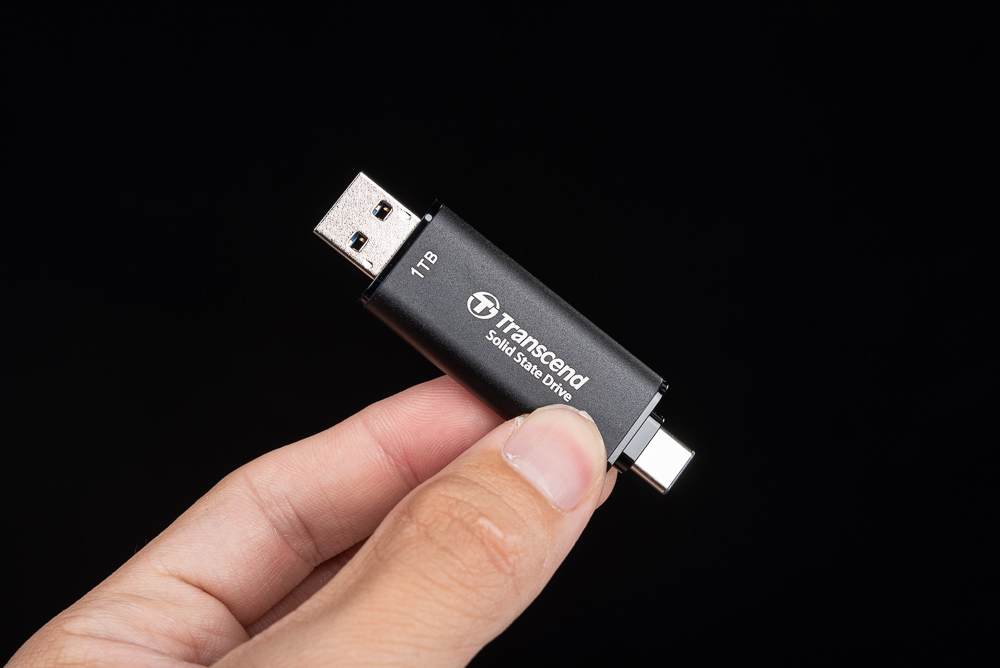
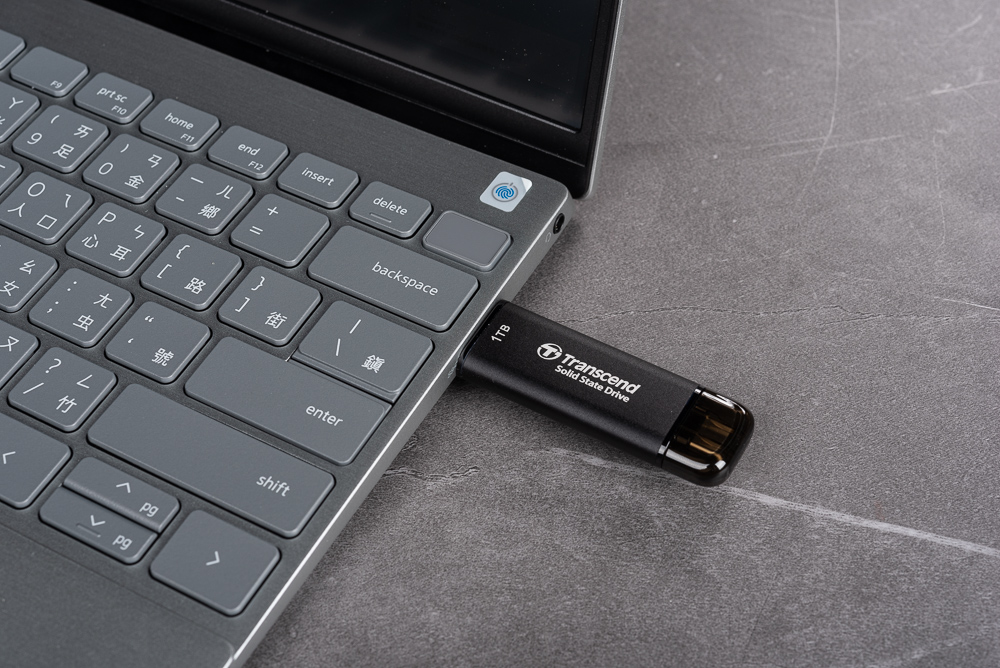

Transcend’s other premier product, the PCIe SSD 250H, incorporates the PCIe 4.0 standard and is powered by the Silicon Motion SM2264 controller. Inside, it employs a quad-core ARM Cortex R8 processor, supports eight NAND flash memory channels, and includes a DRAM cache. Alongside this, an aluminum heat sink is part of the design, ensuring compatibility with various platforms like PCs and the PS5.
The PCIe SSD 250H is designed with an M.2 2280 form factor, double-sided components, and an NVMe PCIe 4.0 x4 interface. Available in 1TB, 2TB, and 4TB capacities, it delivers impressive sequential read and writes speeds of 7500 MB/s and 6700 MB/s, respectively. The maximum available capacity is 4TB, and the device boasts a write endurance of 3120 TBW, corresponding to 43% of the daily write capacity under its five-year warranty period.
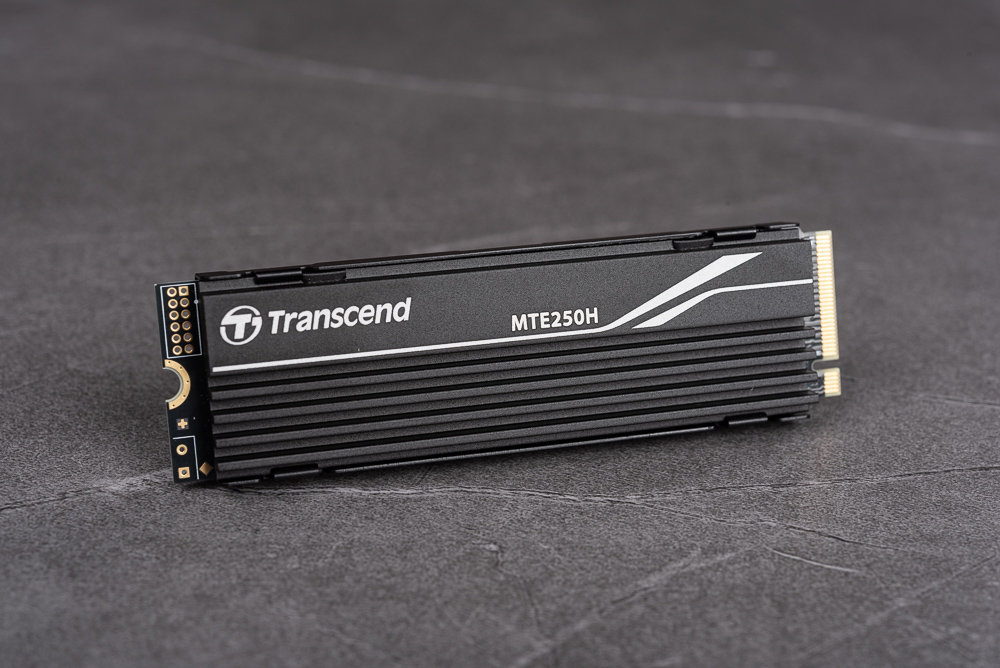
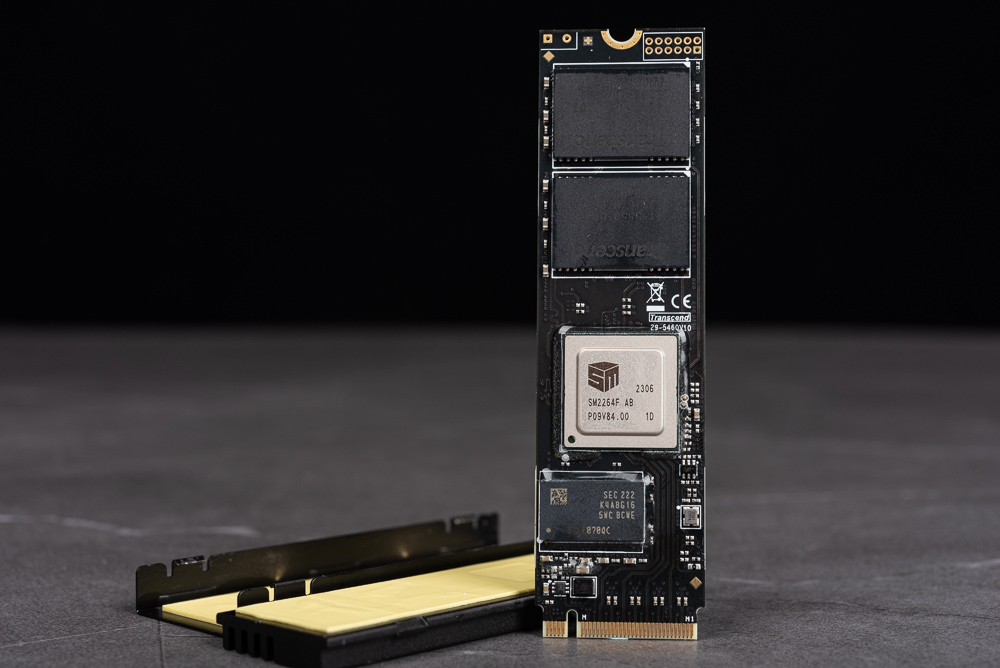
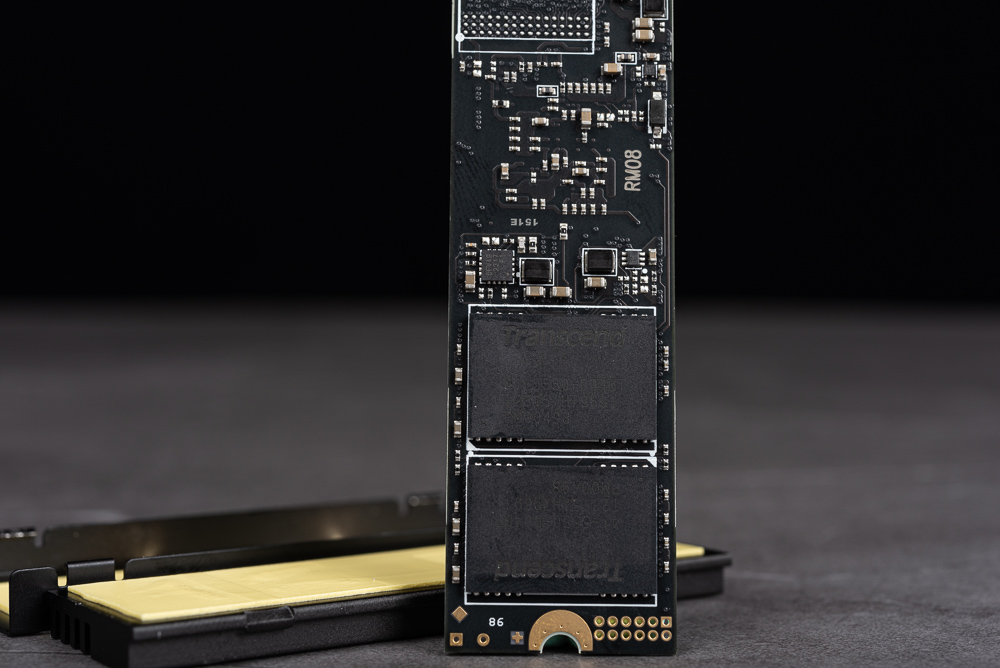
Transcend ESD310C 1TB performance test
The examination was conducted using an Intel Core i9-13900K processor and ROG MAXIMUS Z790 HERO motherboard. Initial disk information for the ESD310C 1TB was checked through CrystalDiskInfo, utilizing USB and UASP transmission, with support for SMART, NCQ, and TRIM commands.
Shipped from the factory, the ESD310C is pre-formatted with the exFAT universal file system. This makes it immediately usable by both PC and Mac computers, and after formatting, it offers a usable storage capacity of 953GB.
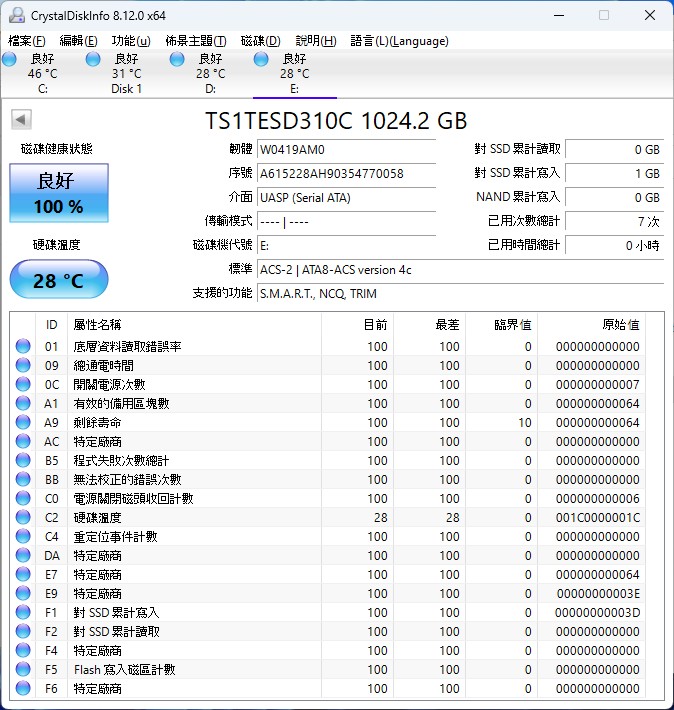
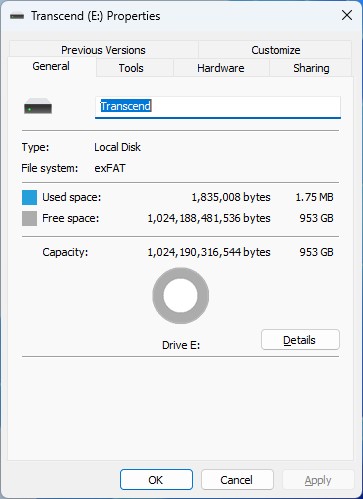
The ESD310C’s performance was assessed using CrystalDiskMark, conducting tests in NVMe random data mode. The results showed a sequential read speed reaching 1053.39 MB/s and a write speed of 962.21 MB/s. Additionally, the random RND4K Q32T16 read was clocked at 170.87 MB/s, while the write speed was 212.84 MB/s.
Both USB-C and USB-A connections were utilized in the testing, yielding identical outcomes. As long as the computer or laptop is compatible with USB 3.2 Gen 2, either Type-A or Type-C can be used to attain a high-speed external transmission performance of USB 10Gbps.
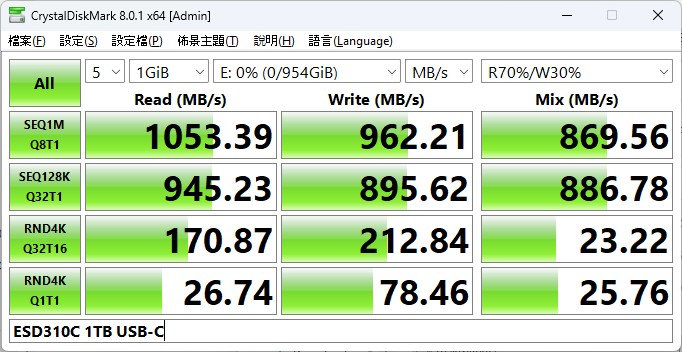
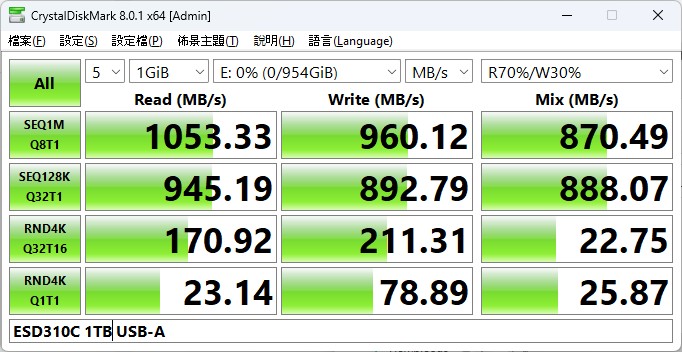
In an image file transfer test using the AJA System Test and simulating the ESD310C with 4K 64GB files, the device managed to reach a transfer performance of 948 MB/s for reading and 871 MB/s for writing.
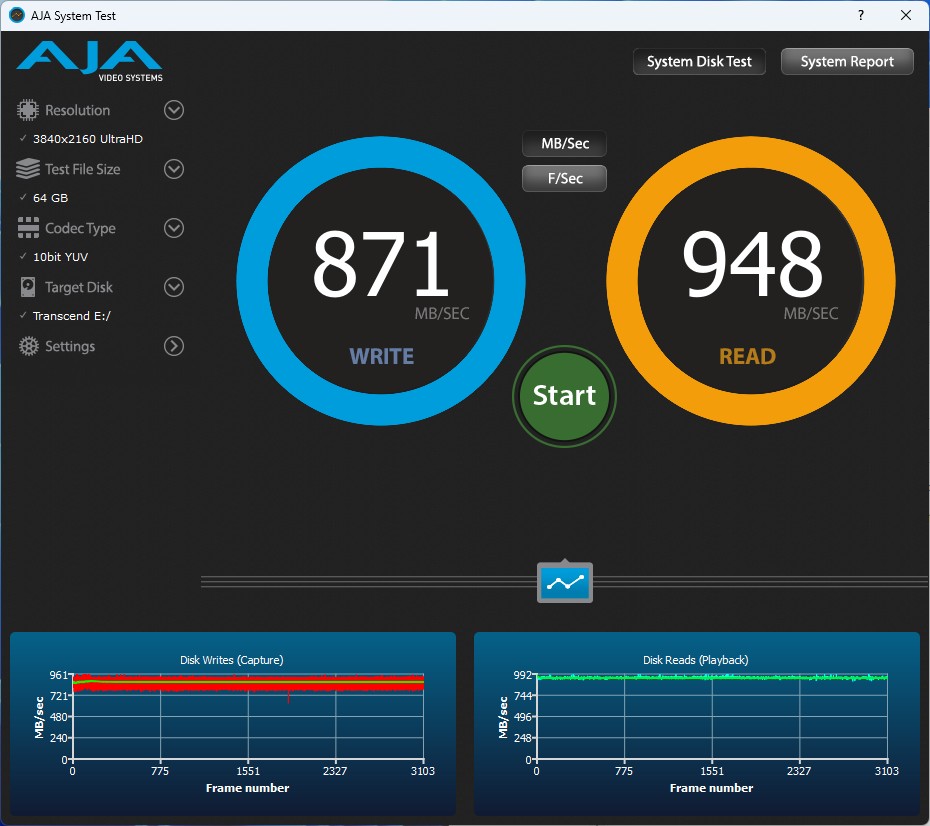
A general Windows file transfer test was conducted using the FastCopy program to read and write various data types, including a single video file of 31GB, 100 RAW photo files totaling 2.8GB, a game folder labeled 2077 weighing 67.4GB, and a collection of scattered small files like docx, pdf, and jpeg, summing up to 29GB.
The ESD310C performed as follows:
- For the single video file: Read at 863 MB/s, Write at 831.4 MB/s
- For the RAW photo files: Read at 851.7 MB/s, Write at 540.8 MB/s
- For the game folder: Read at 883.6 MB/s, Write at 794.1 MB/s
- For the scattered small files: Read at 548.3 MB/s, Write at 282.9 MB/s.
During prolonged file transmission with the compact ESD310C, the temperature as detected by SMART may reach approximately 60°C. Meanwhile, the surface temperature of the casing itself tends to hover around 40°C.

Transcend PCIe SSD 250H 1TB Performance Test
CrystalDiskInfo was utilized to inspect the disk details of the PCIe SSD 250H. With the incorporation of the PCIe 4.0 x4 and NVMe interfaces, it supports functions such as SMART, TRIM, and VolatileWriteCache. Following formatting, the actual usable storage space available on the drive is 931GB.
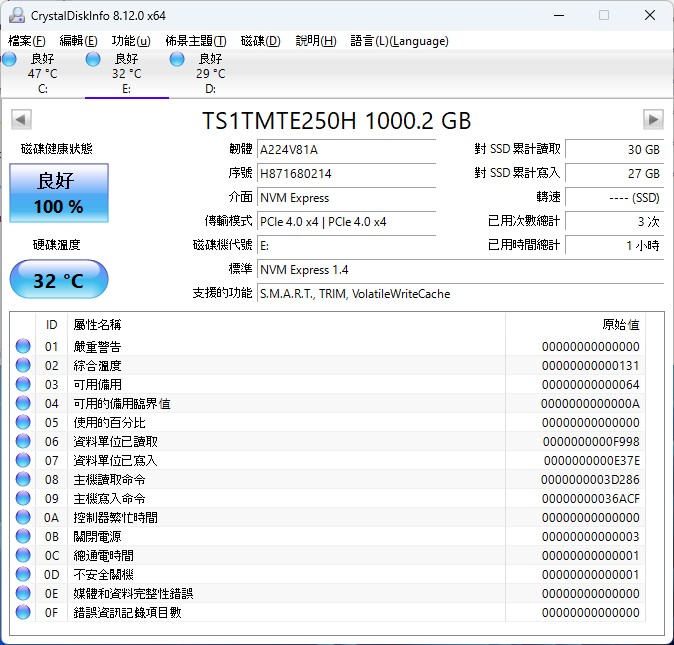
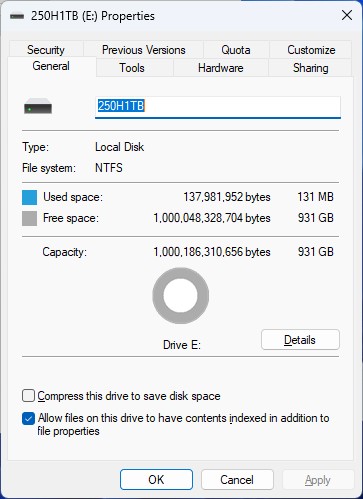
The performance of the PCIe SSD 250H was evaluated using CrystalDiskMark in NVMe random data mode. The results were impressive, with sequential read speeds reaching 7069.6 MB/s and write speeds of 6434.8 MB/s. In the random RND4K Q32T16 test, the read speed was clocked at 2785.68 MB/s, while the write speed measured 3614.03 MB/s.
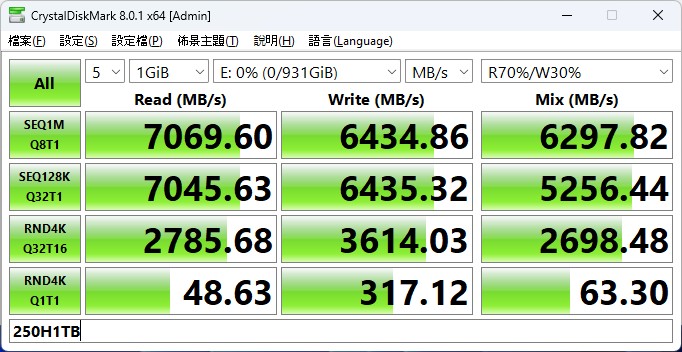
Utilizing ATTO Disk Benchmark, which employs varying I/O sizes to gauge a device’s peak performance, the PCIe SSD 250H was tested on the 8th layer of the Direct I/O queue. The results demonstrated that its maximum read and write speeds could attain 6.6 GB/s and 5.6 GB/s, respectively.
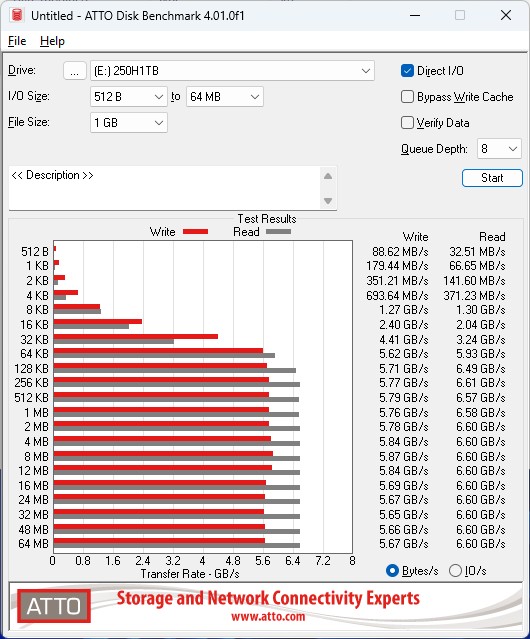
Utilizing the handy ezIOmeter test tool and under the conditions of a 1 Thread 128KB QD32 test, the sequential read and write speeds for the device reached 6750 MBps and 5588 MBps, respectively. Moreover, in the 8 Thread 4KB random QD32 test, the device achieved read speeds of up to 664,582 IOPS and write speeds of 719,462 IOPS.
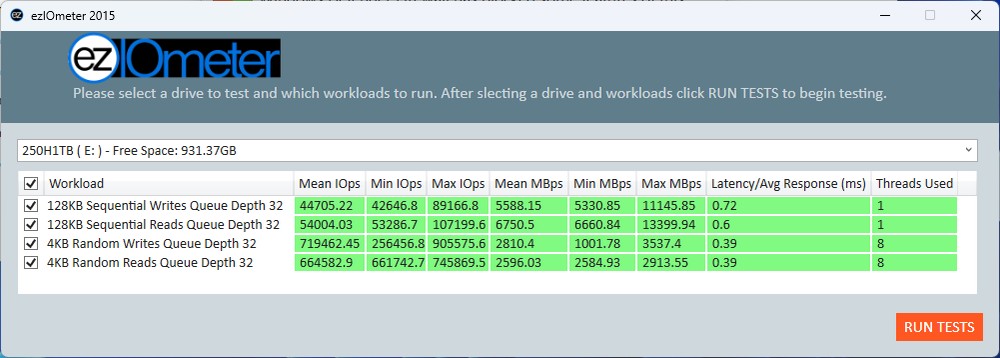
The PCMark 10 storage test function, Full System Drive Benchmark, encompasses 23 daily storage operation tasks. This includes simulations of system startup, Adobe program initiation, Office software operations, and file copying. The results are displayed not only with a total score but also provide metrics like average bandwidth and access time.
For the PCIe SSD 250H, the test yielded a score of 2562 points. It was able to achieve an average bandwidth of 406.95 MB/s and an average access time of 65µs.
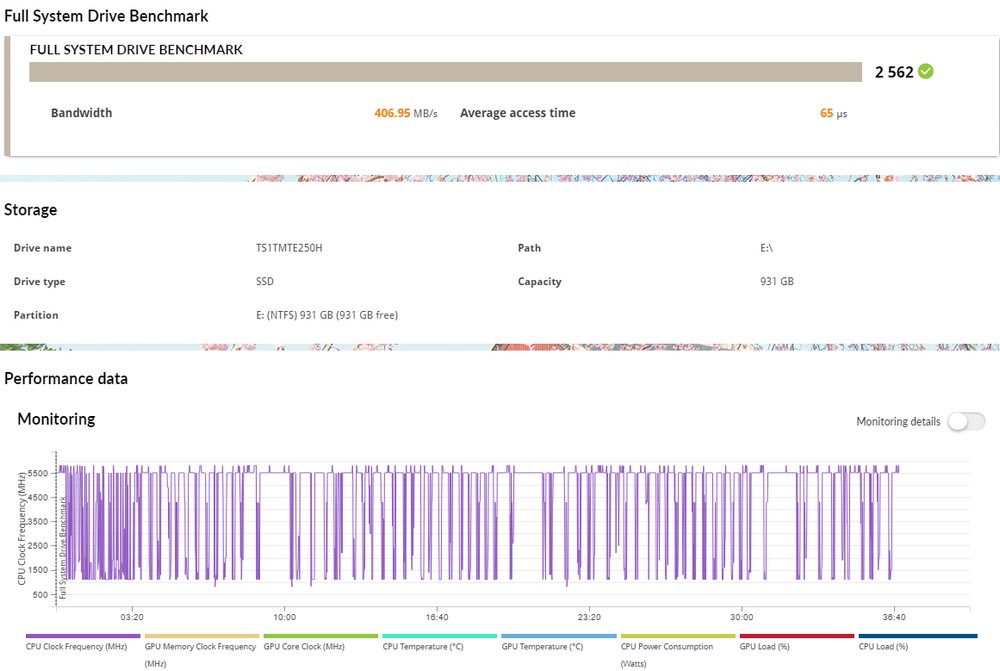
The 3DMark storage test evaluates a storage device by performing actions like starting a game, recording, installing, archiving, and moving the game. The test provides details on the bandwidth and access time for each task.
In this test, the PCIe SSD 250H received a score of 2864 points, demonstrating an average bandwidth of 493.15 MB/s and an average access time of 63µs.
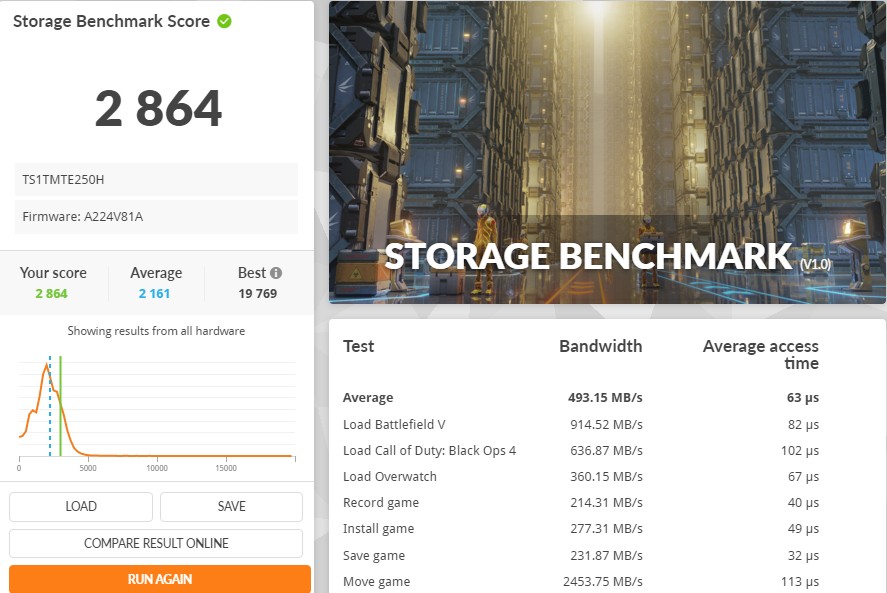
The AIDA64 Disk Benchmark’s Linear Write test measures the fluctuating write performance by fully testing the SSD’s capacity. For the PCIe SSD 250H, the average write performance could attain 2593.2 MB/s. However, a performance decrease was observed when about 15% of the capacity was written. The performance further declined to approximately 1072 MB/s when the capacity reached 80% full.
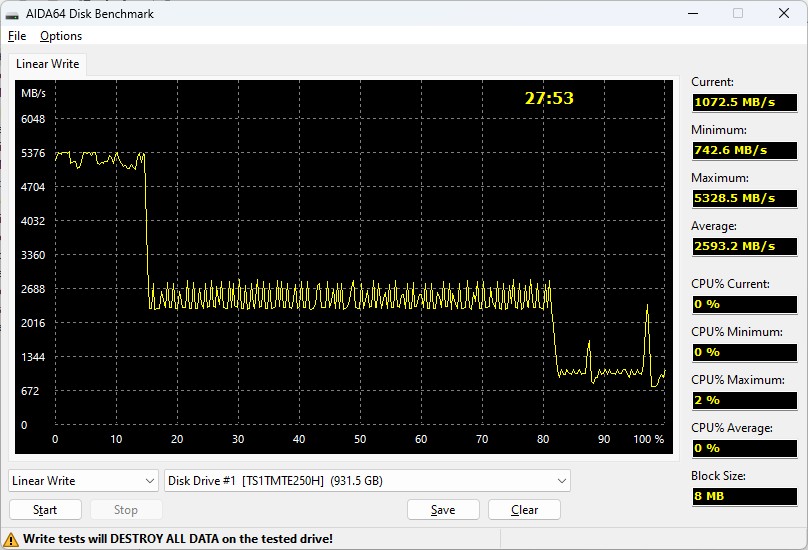
Regarding temperature, the PCIe SSD 250H is equipped with a heat sink. Provided that there is sufficient airflow within the case to facilitate heat dissipation, the maximum temperature recorded during a prolonged writing test only reaches 50°C.

Test Platform
Processor: Intel Core i9-13900K
Motherboard: ROG MAXIMUS Z790 HERO
Memory: Corsair DOMINATOR PLATINUM RGB DDR5 5400 32GBx2
Display Card: GIGABYTE GeForce RTX 4060
Power Supply: Seasonic VERTEX GX-1000 Operating
System: Windows 11 Pro 21H2
Summary
The Transcend ESD310C 1TB Portable SSD, despite its compact size, delivers remarkable read and write performance. With its USB-A and USB-C dual-head design and exFAT format, it offers plug-and-play functionality for both PC and Mac, achieving USB 10Gbps transmission performance. Ideal for high-speed data transmission on the go, the device is priced at a reasonable $2,399 for 1TB, making it more convenient than a DIY M.2 USB SSD.
The Transcend PCIe SSD 250H 1TB, on the other hand, offers top-tier performance consistent with current mainstream PCIe 4.0 x4 SSDs and comes with an aluminum heat sink. Suitable for expansion in both PC and PS5, it’s priced at NT$ 2590 for 1TB. With a 5-year warranty, a write endurance of 780 TBW, and a 1TB capacity, it’s an excellent choice for use as both a system and gaming disk.
If this article is helpful for you, please share this article with your friends on social media. Thank you!
This article is based on the personality of the reviews. You are responsible for fact-checking if the contents are not facts or accurate.
Title: Unpacking review of SMI Solution’s Transcend ESD310C, a compact dual-head USB SSD along with a PCIe SSD 250H